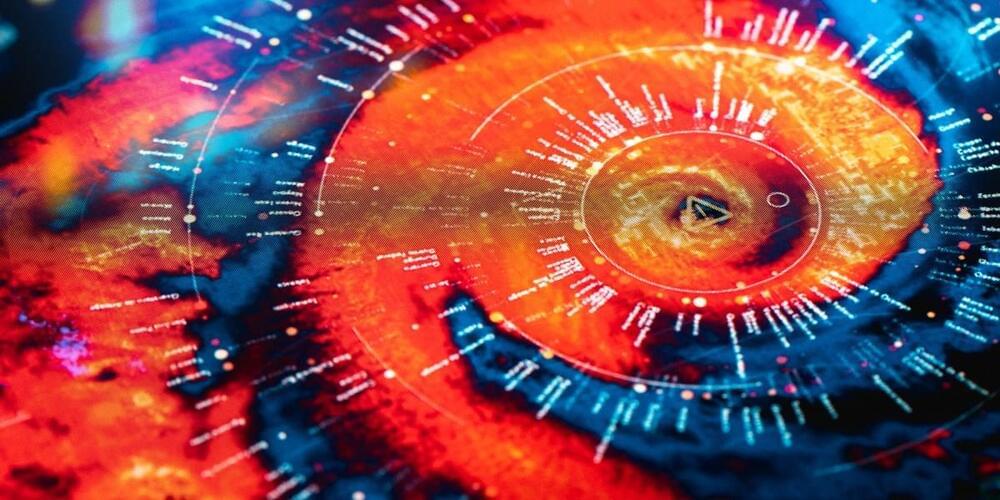While AI has the potential to automate many tasks, there are certain jobs that require human skills and abilities that AI cannot replicate. These include jobs that require creativity, empathy, critical thinking, and human interaction. According to the World Economic Forum, AI is unlikely to be able to replace jobs requiring human skills such as judgement, creativity, physical dexterity and emotional intelligence. Some examples of jobs that AI cannot replace include psychologists, caregivers, most engineers, human resource managers, marketing strategists, and lawyers. In this video, Dr. Michio Kaku mentioned three specific types of jobs that AI cannot replace: blue-collar jobs that are not repetitive, emotional jobs, and jobs requiring imagination. These types of jobs require human skills and abilities that are difficult for AI to replicate. For example, blue-collar jobs that are not repetitive often require physical dexterity and mobility. Emotional jobs require empathy and the ability to connect with others on a personal level. Jobs requiring imagination involve creativity and innovation. In conclusion, while AI has the potential to automate many tasks and change the job landscape, there are certain jobs that require human skills and abilities that AI cannot replicate. These include blue-collar jobs that are not repetitive, emotional jobs, and jobs requiring imagination. It is important for individuals to develop these skills in order to thrive in the future job market. Fair Use Disclaimer : Copyright disclaimer under section 107 of the Copyright Act 1976, allowance is made for “fair use” for purposes such as criticism, commenting, news reporting, teaching, scholarship and research. Fair use is a use permitted by copyright statute that might otherwise be infringing. Non-profit, educational or personal use tips the balance in favor of fair use. Disclaimer: The video and audio content used in this video is for educational purposes only and does not belong to me. I have given credit to the respective owners and creators of the content. This video is intended to provide information and knowledge to its viewers, and no copyright infringement is intended. I have made every effort to ensure that the content used in this video is properly credited and used in accordance with fair use guidelines. If you are the owner of any content used in this video and have any concerns, please contact me. Legal Disclaimer : The video clips incorporated into this project are the sole property of their respective owners and creators. I do not claim ownership or rights to any of the content used. All credit is attributed to the original sources. No copyright infringement is intended. Clips Provided by Cuckoo for Kaku Watch : https://youtu.be/JANGUKLJkPQ #shorts #shortsfeed #shortvideos #shortvideo #shortsvideo #shortsyoutube #shortsviral #viralshortsvideo #viralshorts #viral #viralvideo #viralvideos #space #spaceflightsimulator #deepspace #spaceship #spacelovers #spacesuit #spaceexploration #spacecraft #telescope #spacex #spacestation #universe #cosmos #nasa #viral #viralvideo #viralvideos #science #technology #physics #astronomy #astrophysics #astrophotography #cosmology #cosmos #jwst #jameswebbspacetelescope #jameswebb #hubble #hubbletelescope #video #videos #interstellar
Category: physics – Page 100
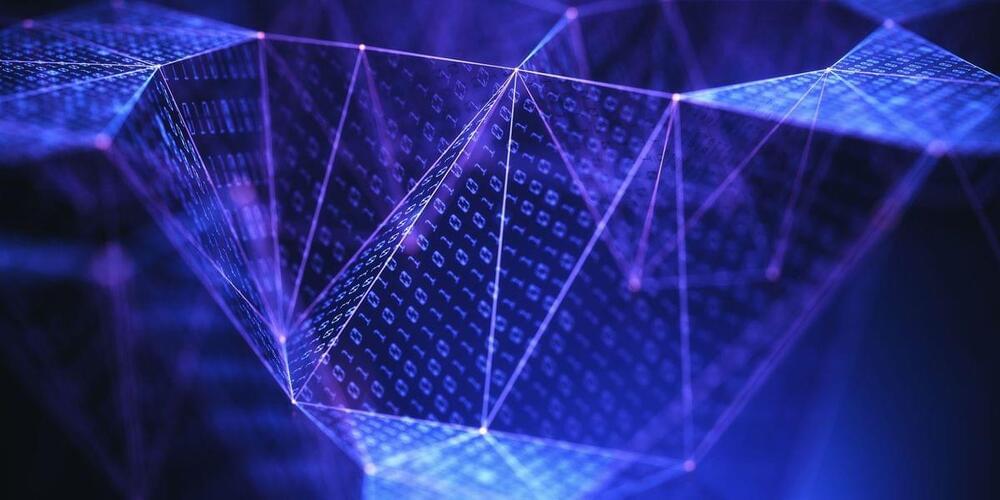
Kalmogorov-Arnold Neural Networks Shake Up How AI Is Done
Artificial neural networks—algorithms inspired by biological brains—are at the center of modern artificial intelligence, behind both chatbots and image generators. But with their many neurons, they can be black boxes, their inner workings uninterpretable to users.
Researchers have now created a fundamentally new way to make neural networks that in some ways surpasses traditional systems. These new networks are more interpretable and also more accurate, proponents say, even when they’re smaller. Their developers say the way they learn to represent physics data concisely could help scientists uncover new laws of nature.
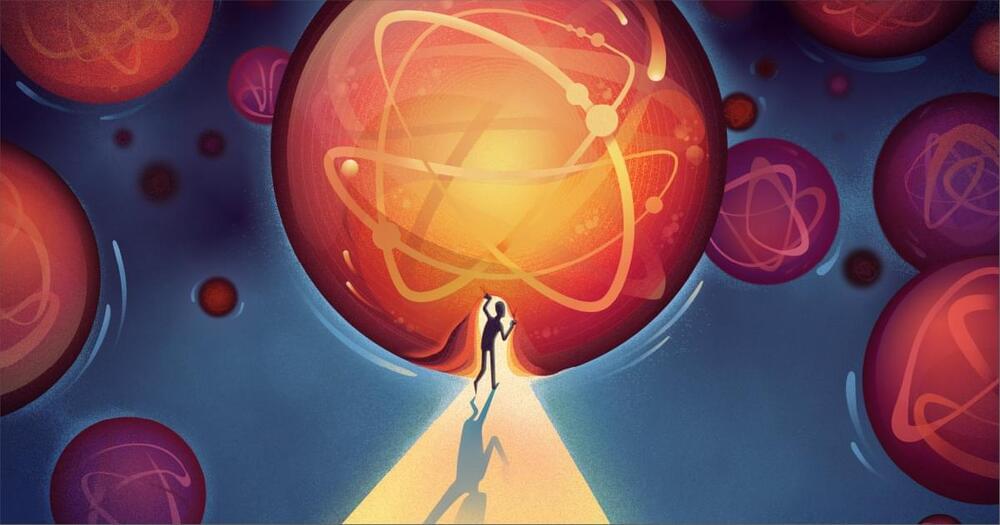
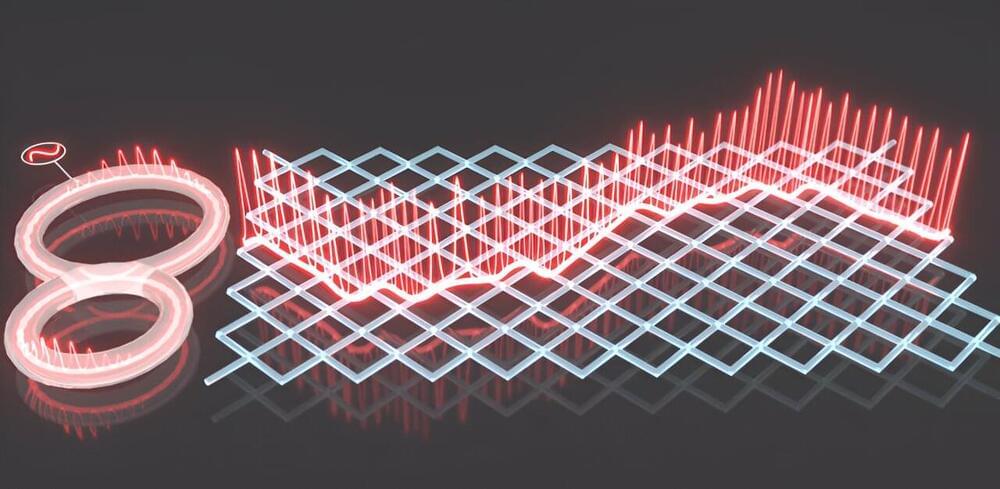
Researchers achieve super-Bloch oscillations in strong-driving regime
Full coherent control of wave transport and localization is a long-sought goal in wave physics research, which encompasses many different areas from solid-state to matter-wave physics and photonics. One among the most important and fascinating coherent transport effects is Bloch oscillation (BO), which refers to the periodic oscillatory motion of electrons in solids under a direct current (DC)-driving electric field.
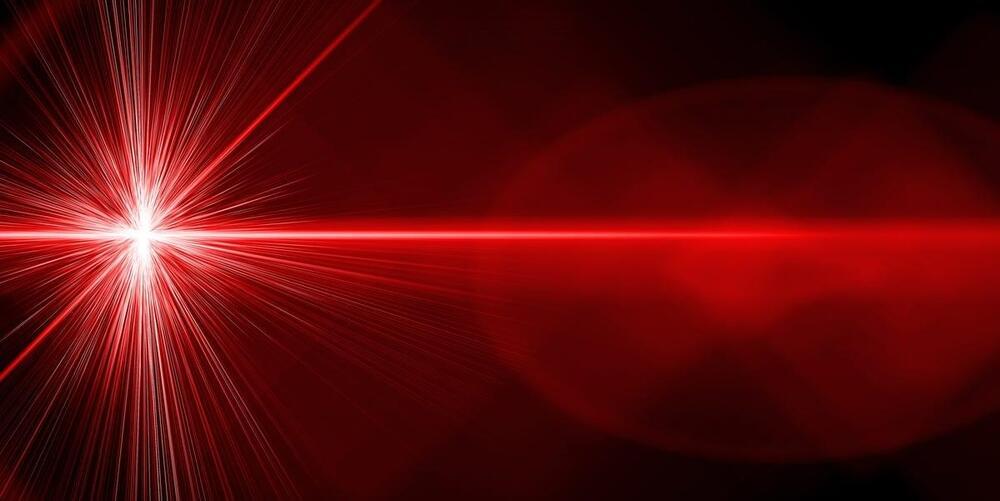
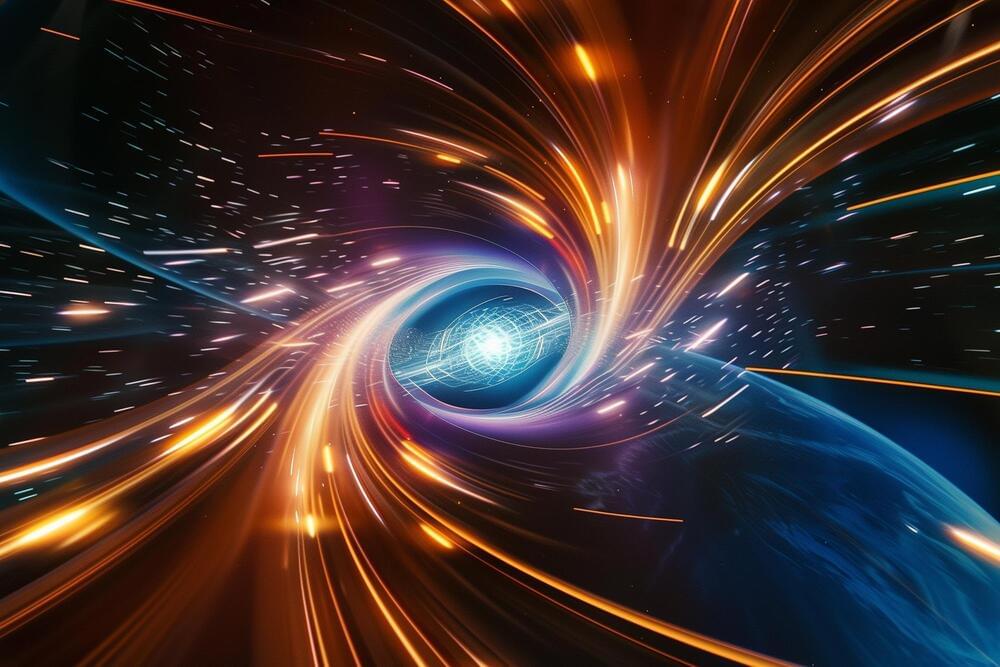
Faster Than Light Travel: New Simulations Explore Warp Drive Gravitational Effects
Researchers have been delving into the concept of warp drives, theoretically allowing spaceships to surpass the speed of light, using principles from Einstein’s General Relativity.
Physicists have been exploring the theoretical possibility of spaceships driven by compressing the four-dimensional spacetime for decades. Although this so-called “warp drive” originates from the realm of science fiction, it is based on concrete descriptions in general relativity. A new study takes things a step further – simulating the gravitational waves such a drive might emit if it broke down.
Warp Drive Research
Julian Barbour — What is Time?
For more on information and video interviews with Julian Barbour, please visit http://bit.ly/1aoc0oZ
For more videos answering the question what is time click here http://bit.ly/1BRNBi2
To buy episodes and seasons of Closer To Truth click here http://bit.ly/1LUPlQS
Time is a mystery; it’s not what it seems. Time’s flow feels unstoppable, yet some say time is not fundamental, perhaps not even real. Why do physicists and philosophers think time is a construct, something that emerges, not something that is basic?
For more Closer to Truth interview videos, please visit http://www.closertotruth.com
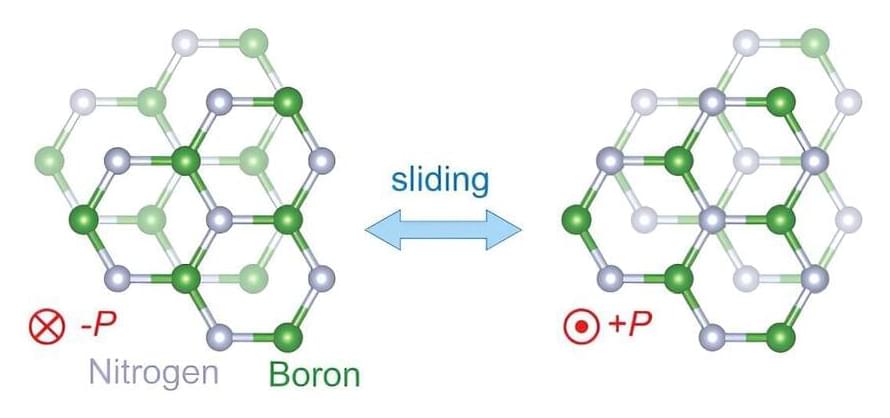
New transistor’s superlative properties could have broad electronics applications
In 2021, a team led by MIT physicists reported creating a new ultrathin ferroelectric material, or one where positive and negative charges separate into different layers. At the time, they noted the material’s potential for applications in computer memory and much more. Now the same core team and colleagues—including two from the lab next door—have built a transistor with that material and shown that its properties are so useful that it could change the world of electronics.
Although the team’s results are based on a single transistor in the lab, “in several aspects its properties already meet or exceed industry standards” for the ferroelectric transistors produced today, says Pablo Jarillo-Herrero, the Cecil and Ida Green Professor of Physics, who led the work with professor of physics Raymond Ashoori. Both are also affiliated with the Materials Research Laboratory.
“In my lab we primarily do fundamental physics. This is one of the first, and perhaps most dramatic, examples of how very basic science has led to something that could have a major impact on applications,” Jarillo-Herrero says.
Are Dyson Spheres Actually Possible?
Use code coolworlds at https://incogni.com/coolworlds to get an exclusive 60% off an annual Incogni plan. The idea of Dyson Spheres was a radical proposal by the physicist Freeman Dyson, an enormous shell of material enveloping a star. Dyson’s idea may be over half a century old, but interest in looking for such objects has only grown in the decades since. But how would such structures work? Are they physically even possible? And what might someone use them for? Today, we dive into the physics of Dyson spheres. Written & presented by Prof. David Kipping. Edited by Jorge Casas. Special thanks to Jason Wright for fact checking. → Support our research: https://www.coolworldslab.com/support → Get merch: https://teespring.com/stores/cool-wor… Check out our podcast: / @coolworldspodcast THANK-YOU to T. Widdowson, D. Smith, L. Sanborn, C. Bottaccini, D. Daughaday, S. Brownlee, E. West, T. Zajonc, A. De Vaal, M. Elliott, B. Daniluk, S. Vystoropskyi, S. Lee, Z. Danielson, C. Fitzgerald, C. Souter, M. Gillette, T. Jeffcoat, J. Rockett, D. Murphree, M. Sanford, T. Donkin, A. Schoen, K. Dabrowski, R. Ramezankhani, J. Armstrong, S. Marks, B. Smith, J. Kruger, S. Applegate, E. Zahnle, N. Gebben, J. Bergman, C. Macdonald, M. Hedlund, P. Kaup, W. Evans, N. Corwin, K. Howard, L. Deacon, G. Metts, R. Provost, G. Fullwood, N. De Haan, R. Williams, E. Garland, R. Lovely, A. Cornejo, D. Compos, F. Demopoulos, G. Bylinsky, J. Werner, S. Thayer, T. Edris, F. Blood, M. O’Brien, D. Lee, J. Sargent, M. Czirr, F. Krotzer, I. Williams, J. Sattler, B. Reese, O. Shabtay, X. Yao, S. Saverys, A. Nimmerjahn, C. Seay, D. Johnson, L. Cunningham, M. Morrow, M. Campbell, B. Devermont, Y. Muheim, A. Stark, C. Caminero, P. Borisoff, A. Donovan & H. Schiff. REFERENCES ► Wright, J. 2020, “Dyson Spheres”, Serbian Astronomical Journal, 200, 1: https://arxiv.org/abs/2006.16734 ► Dyson, F. 1960, “Search for Artificial Stellar Sources of Infrared Radiation”, Science, 131, 1667: https://ui.adsabs.harvard.edu/abs/196… ► Dyson, F. 1960, Science, 132,250 ► NASA IRB JWST Report 2018: https://www.nasa.gov/wp-content/uploa… ► Papagiannis, M. D. 1985, “SETI — a look into the future.”, The search for extraterrestrial life: recent development, 543: https://ui.adsabs.harvard.edu/abs/198… ► Scoggins, M. & Kipping, D. 2023, “Lazarus stars: numerical investigations of stellar evolution with star-lifting as a life extension strategy”, MNRAS, 523, 3251: https://arxiv.org/abs/2210.02338 MUSIC Licensed by SoundStripe.com (SS) [shorturl.at/ptBHI], Artlist.io, via CC Attribution License (https://creativecommons.org/licenses/…) or with permission from the artist. 0:34 Tamuz Dekel — Quiet Pull 3:05 We Dream of Eden — Discovery 4:23 Hill — World of Wonder [https://open.spotify.com/track/7kYX7G… ] 6:28 Chris Zabriskie — Music from Neptune Flux 4 8:59 Hill — Arctic Warmth 11:54 Hill — Northern Borders 15:13 Hill — Fragile 17:45 Indive — Trace Correction CHAPTERS 0:00 Prologue 0:39 Inception 3:11 Incogni 4:27 Mechanical Stability 8:31 Gravitational Stability 11:08 Stellar Feedback 13:42 Computational Limits 16:23 Rings and Swarms 17:45 Outro and Credits #DysonSphere #Astronomy #CoolWorlds
